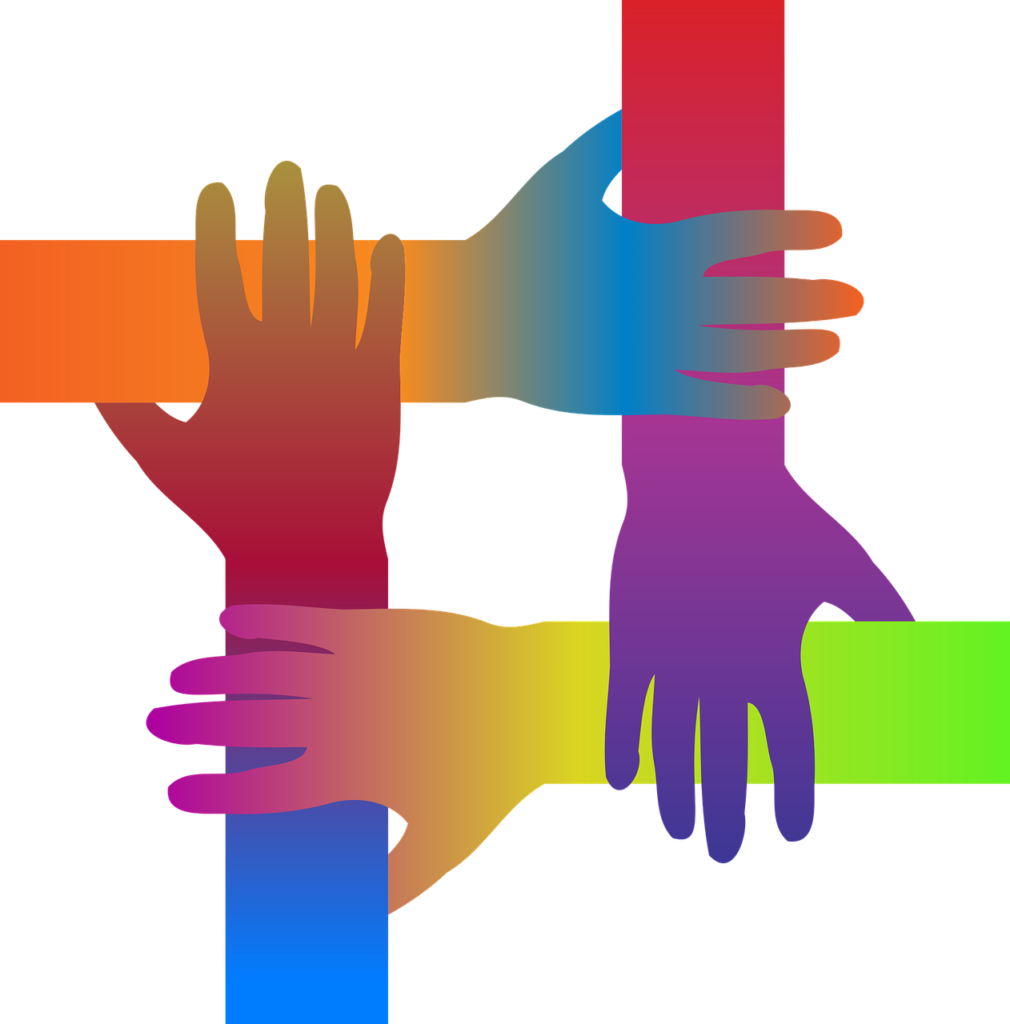Diversity and Inclusion
The challenges of attracting and retaining talent is a major issue impacting the delivery of major projects. Approaches around Equality, Diversity & Inclusion have a huge impact on appealing to a wider cohort of talent and retaining that talent within the industry. The group was extremely engaged in the issue and keen to understand how major projects and the organisations that deliver them can become more diverse and inclusive.
On Thursday 8th December, the Major Projects group heard from Tracey Collins and Paul Thornton about the work Kier, Equality, Diversity and Inclusion winners at the CE National Awards, has undertaken to improve Diversity and Inclusion within their company.
Key learning points
 The Diversity and Inclusion journey is a cultural change for a whole organisation and takes time, training, support and commitment. It requires a bottom up and top-down approach. Senior leaders having objectives around Diversity and Inclusion can help drive this. This cultural shift requires the involvement of all individuals and needs to be collaborative. It’s important to consider this when training staff, face to face can be more influential than e-learning.
The Diversity and Inclusion journey is a cultural change for a whole organisation and takes time, training, support and commitment. It requires a bottom up and top-down approach. Senior leaders having objectives around Diversity and Inclusion can help drive this. This cultural shift requires the involvement of all individuals and needs to be collaborative. It’s important to consider this when training staff, face to face can be more influential than e-learning. - Consider having Inclusion moments alongside Health and Safety moments. It’s very similar to the culture change that has happened around Health and Safety.
- Establishing a baseline position can be difficult as it takes time for people to open up, especially with those who primarily work offline – need to have lots of options to make it easy for people to share data. There is a lot of HR data that can be used to establish the baseline.
- Don’t forget the importance of role models and the profound positive impact that senior leaders opening up about their own experiences, e.g. mental health challenges, can have on those experiencing similar issues.
- Look at the entire recruitment process from checking job adverts for unconscious bias, through blind CVs, diverse shortlists and diverse panels.
- From a recruitment and retention perspective applicants are asking for sustainability credentials but increasingly D&I credentials.
- Reverse mentoring can be a great way to help senior leaders understand the lived experience of people across the organisation.
- Working environments can have a huge impact on inclusion – careful consideration needs to be given to office and site-based environments.
- Don’t be afraid to tackle some things head on such as ‘banter’ head on to tackle the issues that have a real impact on people’s day-to-day experience and use authentic and relatable language to get the points across.
The Kier Story
Kier believe that Diversity and Inclusion (D&I) is key to their success as a business and fundamental to how they operate. In 2021 they decided it was time to get a better understanding of their offering within this area to see where there was room for improvement. This undertaking began with an audit, for which they sought external support to assess Diversity and
 Inclusion within their organisation. The data and feedback they gained from this was used to create a roadmap which outlined their 5-year plan to further develop D&I.
Inclusion within their organisation. The data and feedback they gained from this was used to create a roadmap which outlined their 5-year plan to further develop D&I.
 What Steps Have Been Taken So Far?
What Steps Have Been Taken So Far?
Employee Networks
They started by re-formatting and re-launching their employee networks to ensure they enabled all staff to have a voice within the company as well as ensuring the networks were effective and impactful in the D&I improvement journey. These networks include ‘Kier Inclusion Network’, ‘The Pride Network’, ‘Gender Inclusion Network’, ‘Racial Inclusion Network’, ‘Kier Ability Network’ and ‘Armed Forces Network’. Whilst nearly 1000 people make up these networks, effort was made to make them more accessible by setting up Inclusion Champions who attend meetings and disseminate information to those unable to attend.

Once the networks were re-launched, a Diversity and Inclusion Committee was established as the top-level governance, sponsored by the CEO and Chaired by the Chief People Officer, to oversee the employee networks. These communities were set up with the aim of encouraging collaboration and ownership of D&I- all members of the company should have some responsibility for ensuring D&I has high importance and quality.
Training and Education
It was important to dedicate time to training and education for all employees, with no criticism for getting things wrong but full support to get it right. Part of this process included the development 5 respect basics. These principles were created with the support of members of the supply chain and Kier employees and followed in the same vein as the 5 SHE basics which all members of the company knew by rote. Kier wanted to apply the same importance to the 5 basics of respect, encouraging staff to handle them in a similar fashion- nobody would walk past a Health and Safety hazard and ignore it, neither should they do so with a Diversity & Inclusion concern.
Training was giving to all 10,000 individuals within the Kier organisation, on the Expect Respect campaign, and access to confidential reporting measures were introduced to allow people to raise concerns anonymously.

Posters were made to emphasise the learning from the Expect Respect campaign and ensure it remained a key focus for all staff:
© Kier, 2021
Recruitment Practises
One of the big considerations in increasing Diversity and Inclusion was how to attract a diverse range of individuals whilst still working to retain current staff. Their aims in doing this were:
- Making employment opportunities more accessible
- Providing specific pathways to promote D&I
- Seeking skills in untapped talent pools

To support this, Kier engaged with various programmes, such as:
RefuAid– supporting refugee engineers to gain employment through mentoring and support to improve employability.
10,000 Black Interns– opportunities for black and minority ethnic individuals to undertake summer internships, which Kier will be part of offering.
STEM Returners– Kier will be offering 12-week paid placement for STEM professionals that have been out of work for over a 1-year period. The aim is to support those returning to work for whatever reason and allow them to build up experience and confidence during this process.
Making Ground– a prison programme to support leavers to gain skills and employment as well as supporting individuals still in prison to train and build experience, particularly those on release on temporary license.
Armed Forces support– Kier have been re-awarded Gold by the Defence Employer Recognition (ERS) scheme. They offer support to employees working for the Armed Forces e.g. reservists, as well as those who have left (veterans), and those with close family in the Armed Forces.
These programmes help to shape a more diverse recruitment pool and assist in transforming the view of a ‘typical’ construction worker. Diversity shouldn’t be a barrier to recruitment just because you don’t fit the mould.
‘typical’ construction worker. Diversity shouldn’t be a barrier to recruitment just because you don’t fit the mould.

Next Steps
Kier recognise that this journey is continuous and that their approach must be constantly reviewed to ensure their roadmap continues to be effective. This means they must continue to assess and collect data to drive action and set tangible target for D&I.
Training must continue in order to educate new and existing employees and raise awareness. This will ensure that the Expect Respect principles are part of D&I in every Kier workplace and all who work there.
Continuing to collaborate with colleagues, employees, partners and other organisation will continue to drive improvement within D&I.
About the CE Major Projects Group
Chaired by John Oliver at Babcock, the Major Projects Group has a significant role to play in driving innovation, productivity, and performance across the entire sector. Improving productivity and removing non-value-added activity is critical to enable Major Projects to fulfil their potential and deliver broad-based benefits. The Major Projects Group aims to bring these to life with real examples of productivity improvement and we will communicate this work throughout Constructing Excellence and beyond.
The group drills into the challenges and opportunities of major projects to facilitate productivity improvements and build on their potential to act as live learning environments. We will create an informal safe space to share challenges and opportunities and get viewpoints from a range of disciplines and supply chain positions across major projects.






Comments are closed.